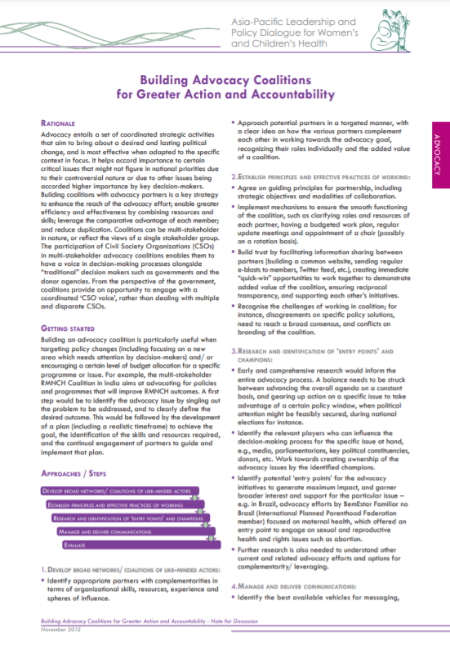Building advocacy coalitions for greater action and accountability

Overview
Advocacy entails a set of coordinated strategic activities that aim to bring about a desired and lasting political change, and is most effective when adapted to the specific context in focus. It helps accord importance to certain critical issues that might not figure in national priorities due to their controversial nature or due to other issues being accorded higher importance by key decision-makers. Building coalitions with advocacy partners is a key strategy to enhance the reach of the advocacy effort; enable greater efficiency and effectiveness by combining resources and skills; leverage the comparative advantage of each member; and reduce duplication. Coalitions can be multi-stakeholder in nature, or reflect the views of a single stakeholder group. The participation of Civil Society Organizations (CSOs) in multi-stakeholder advocacy coalitions enables them to have a voice in decision-making processes alongside “traditional” decision makers such as governments and the donor agencies. From the perspective of the government, coalitions provide an opportunity to engage with a coordinated ‘CSO voice’, rather than dealing with multiple and disparate CSOs.

.png?sfvrsn=6d0e27cd_1)



